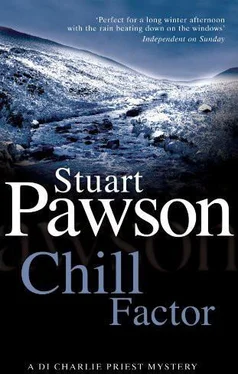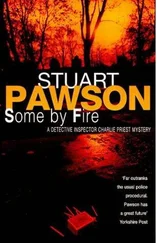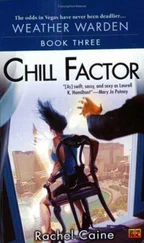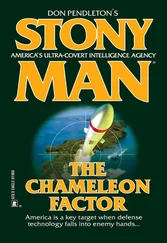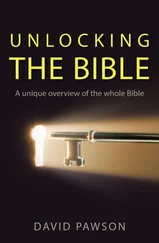Stuart Pawson - Chill Factor
Здесь есть возможность читать онлайн «Stuart Pawson - Chill Factor» весь текст электронной книги совершенно бесплатно (целиком полную версию без сокращений). В некоторых случаях можно слушать аудио, скачать через торрент в формате fb2 и присутствует краткое содержание. Жанр: Полицейский детектив, на английском языке. Описание произведения, (предисловие) а так же отзывы посетителей доступны на портале библиотеки ЛибКат.
- Название:Chill Factor
- Автор:
- Жанр:
- Год:неизвестен
- ISBN:нет данных
- Рейтинг книги:4 / 5. Голосов: 1
-
Избранное:Добавить в избранное
- Отзывы:
-
Ваша оценка:
- 80
- 1
- 2
- 3
- 4
- 5
Chill Factor: краткое содержание, описание и аннотация
Предлагаем к чтению аннотацию, описание, краткое содержание или предисловие (зависит от того, что написал сам автор книги «Chill Factor»). Если вы не нашли необходимую информацию о книге — напишите в комментариях, мы постараемся отыскать её.
Chill Factor — читать онлайн бесплатно полную книгу (весь текст) целиком
Ниже представлен текст книги, разбитый по страницам. Система сохранения места последней прочитанной страницы, позволяет с удобством читать онлайн бесплатно книгу «Chill Factor», без необходимости каждый раз заново искать на чём Вы остановились. Поставьте закладку, и сможете в любой момент перейти на страницу, на которой закончили чтение.
Интервал:
Закладка:
“Mmm, makes sense,” I agreed.
Dave looked at his watch, saying: “It’s time we were off.”
The friendly neighbourhood spy had informed his contact at the Gazette that I was on the scene, and a reporter was waiting for us as we emerged from The Garth. She had spiky red hair, a ring through her nose and a bullish manner.
“Are you the investigating officer?” she demanded.
“Yes,” I told her, resigning myself to making some sort of statement. “And just who are you?”
She rattled off one of those names that rhymes with itself, like Fay Day or Carrol Barrel, as if it were self-evident who she was and only a parochial fool like myself wouldn’t know. This woman was ambitious, going places, and a small-town murder meant nothing more to her than a by-line. Next week she’d either be applying for Kate Adie’s job or back on hospital radio. “And is the raid on this house related to the murder last evening at West Woods?” she asked.
News travels fast, I thought. I drew a big breath and launched myself into it: “We are investigating a suspicious death at a residence in the West Woods estate,” I told her, “and have arrested a person. Our enquiries have brought us here, where we have found the body of a woman. At this point in the investigation we are not looking for anybody else. Our press office will release further information as and when it becomes available.” I can reel out the cop-speak with the best of them, when I don’t want to say what I’m thinking.
She couldn’t believe her luck. “You mean there’s still a body in there?” she demanded, her eyes gleaming.
“No,” I said. “It was removed earlier this morning, for post-mortem examination. Now if you’ll excuse me.”
She produced a mobile phone — it was hanging on a thong around her neck — and called for a photographer, House of Death headlines buzzing through her head.
The PC on duty asked if I wanted the integrity of the scene maintaining and I said I did. We had a quick word with the house-to-house people, but they had no great revelations for us, and drove back to the nick.
On the way Dave said: “You’re not happy with this, are you?”
“Just playing safe, Dave,” I replied.
“What’s the problem?”
“No problem. According to Silkstone, Latham killed his wife so he killed Latham. Motive — revenge. Taking into consideration the balance of his mind, and all that, he’d be done for manslaughter and could be free in a year.”
“That’s true,” Dave said. “And if he was on remand for a year he could be released straight after the trial.”
“But what if,” I continued, “they were both in on it? What if they were both there when Mrs Silkstone died? That could mean a life sentence. This way, he’s put all the blame on Latham, who is in no position to defend himself.”
Dave thought about it, before saying: “You mean, they were having some sort of three-in-a-bed sex romp, and it all went wrong?”
I glanced sideways at him. “Do people do such things in Heckley?” I asked.
“Not to my knowledge,” he replied.
“Maybe they were over enthusiastic,” I suggested, “and she died. They invented some sort of story but Silkstone thought of a better one. He killed Latham and came to us.”
“It’s a possibility,” Dave agreed.
“Alternatively,” I began, exploring the possibilities, “ perhaps Silkstone did them both, all alone and by himself. It’d be cheaper than a divorce.”
“And tidier,” Dave added.
“And possibly even profitable,” I suggested. “That’s something to look at.”
“We’re getting ahead of ourselves,” Dave cautioned. “Let’s wait for the DNA results.” He was silent for the rest of the way. As we turned into the car-park he said: “The bloke’s lost his wife, Charlie. Don’t forget that.”
“I know,” I replied, adding: “I think I’ll ask the professor to look at the crime scene, see what he thinks.” The professor is the pathologist at Heckley General Hospital, and at that very moment he was turning his blade towards the fair skin of Mrs Margaret Silkstone, subject of our debate. I locked the car doors and we headed for the entrance.
There was a message from Annette waiting for me at the front desk. A neighbour had positively identified Peter Latham, who had died from a single knife wound to the heart. Time of death between three and six o’clock, Wednesday afternoon. I passed it to Dave and asked if Prendergast had arrived yet. He was locked in the cell with his client, I learned, discussing strategies, defences and tactics. The truth was outside his remit.
“’Ello, Mr Priest,” a squeaky voice said, behind me. I spun round and faced two traffic cops straight in the eye. They were wearing standard-issue Velcro moustaches and don’t-do — that expressions, but neither had a ventriloquist’s dummy sitting on his arm. I tilted my gaze downwards forty-five degrees and met that of a grubby angel standing between them.
“Jamie!” I exclaimed, treading an uneasy path between disapproval and surprise. “What are you doing here?”
“Bin invited in to ’elp you wiv enquiries, ’aven’t I?” he replied.
“And can you ’elp — help — us?”
“Nah. Don’t know nowt about it, do I?”
“Well do your best.” I turned back to the desk, but he said: “’Ere, Mr Priest. Is it right you used to ’ave a knee-type Jag?”
“That’s right,” I told him. “A red one.”
“Cor!” he replied. “Best car on t’road.”
They took him away to feed him on bacon sandwiches while he fed them a pack of lies, and we arranged to interview Silkstone in ten minutes. I went to the bog and washed my face. There was a mounting pile of reports on my desk, but they’d have to wait. I always read them all, but on every murder enquiry we have a dedicated report reader who siphons off the important stuff. I like to read all the irrelevant details, too: the minutiae of the lives of the people who pass through our hands. Sometimes, they tell me things. As Confucius say, wisdom comes through knowledge.
Prendergast was wearing a blue suit and maroon tie, and could have been about to deliver a budget speech. He didn’t. He launched straight into the attack by complaining about our treatment of his client, who was, he reminded us, traumatised by the sudden and violent death of the woman he loved.
I apologised if we had appeared insensitive, but reminded them that Mr Silkstone had, by his own admission, killed a man and we were conducting a murder enquiry. We’d collect some of his own clothes for him, I promised, as soon as the crime scene was released, and I told him that his wife’s body had been taken to the mortuary. We needed Silkstone to formally identify the body later, and he agreed.
“Will he be taken there in handcuffs, Inspector?” Prendergast asked.
“As Mr Silkstone surrendered himself voluntarily I don’t think that will be necessary,” I conceded. I must be getting soft.
The preliminary fencing over, we started asking questions. Silkstone stuck to his story, saying that he’d come home to see Latham leaving his house. Inside, he’d found Margaret lying on the bed with a ligature around her neck. He’d attempted to remove it, but quickly realised that she was dead. The rest was a bit vague, he claimed. It always is. He agreed that he must have followed Latham home and gone in the house after him. He suddenly found himself standing in the kitchen, with Latham’s body lying on the floor, between his feet. There was a knife sticking out of Latham’s chest, and on the worktop there was one of those wooden blocks with several other knives lodged in it. He did not dispute that he stabbed Latham, but claimed to have no memory of the actual deed.
Читать дальшеИнтервал:
Закладка:
Похожие книги на «Chill Factor»
Представляем Вашему вниманию похожие книги на «Chill Factor» списком для выбора. Мы отобрали схожую по названию и смыслу литературу в надежде предоставить читателям больше вариантов отыскать новые, интересные, ещё непрочитанные произведения.
Обсуждение, отзывы о книге «Chill Factor» и просто собственные мнения читателей. Оставьте ваши комментарии, напишите, что Вы думаете о произведении, его смысле или главных героях. Укажите что конкретно понравилось, а что нет, и почему Вы так считаете.
